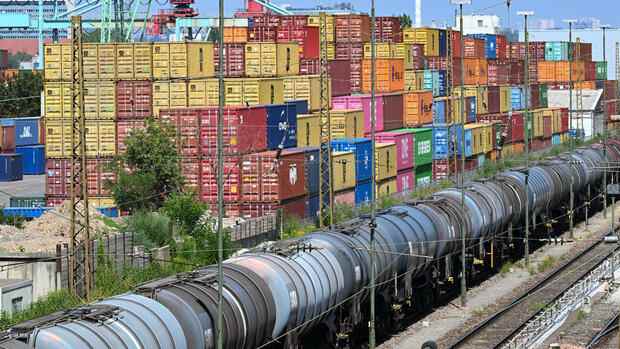The criticism is not only based on the fact that the associations only had 24 hours to evaluate the plans. The Federation of German Industries, for example, describes the lack of any impact assessment as “unacceptable”.
“With the rail network already partially overloaded, it is to be expected that prioritizing rail transport will result in the failure of other rail transport,” the BDI clarifies. “That would lead to significant additional financial burdens for the companies affected, as they would have to adjust production processes or, if possible, switch to other modes of transport.”
Likewise, carriers could face “compensation claims” if they have to cancel other orders. However, there is no provision for compensation from the public purse.
Top jobs of the day
Find the best jobs now and
be notified by email.
The liability of the public sector is just as necessary as “compensation for lost profit”. Compensation must also be paid if traffic is shifted onto the road. “This urgently needs to be corrected,” demands the BDI.
The state should take over damage caused by the transporters
The industry association also points out that in the event of prioritization, “at least the operability of the industry must be guaranteed” “without unduly restricting other rail freight and passenger transport”. The companies would have to be informed at an early stage in order to organize replacement transport.
>> Read here: “We should open Nord Stream 2 as soon as possible” – Wolfgang Kubicki’s proposal met with criticism
“The organization of these alternative traffic is difficult to realize in any case against the background of the already heavily used road market and reduced capacities of inland waterway transport,” the statement continues. “Furthermore, the possibility of a hardship regulation should be created to prioritize selected top-level traffic.” In order to create capacity at all, the permissible total weight of trucks should be possible at 44 tons, “wherever the road infrastructure allows it today”.
The Federal Ministry of Economics sent the regulation, which was drawn up jointly with the Federal Ministry of Transport, to the associations on Thursday afternoon and only gave them 24 hours to evaluate it. In view of the energy shortage caused by the Ukraine war and the sanctions against Russia, the regulation should come into force as soon as possible and apply for six months in order to supply refineries and power plant sites with alternative energies such as coal and transformers if necessary.
This is how the gas crisis should be cushioned. To this end, the network operator, DB Netz AG, should be able to terminate existing contracts with railway companies for transport slots without having to be liable for the consequences.
The associations unanimously share the goal of securing the country’s energy supply. However, the Association of German Transport Companies criticizes that the regulation “goes beyond the original objective”.
Energy transport not at the expense of passenger transport
Thus, specific routes are not named on which the special transports are to take place, but rather “almost the entire network of the main transport routes” of the railway. In fact, there are 31 pages of the draft describing the “energy corridor network”.
The association also emphasizes that “large parts of the population depend on rail passenger transport, especially in local transport”. Accordingly, a “minimum base load” is indispensable. The state must also compensate for any damage caused to companies.
>> Read here: 20 years to build a railway line? Buschmann wants to speed up court processes for infrastructure
The Federal Association for Local Rail Transport also shares this view. Local transport is a service of general interest and absolutely necessary for working people. The association therefore calls for “equal priority to be given to the peak traffic times between 5 a.m. and 9 a.m. and between 3 p.m. and 7 p.m. in the local rail passenger transport services with the transport of energy sources”.
The Mofair association, which represents companies in local passenger transport, takes a similar stance and, like the other associations, speaks of the “vagueness” of the regulation and “non-transparent regulations on liability”. This was met with all the more incomprehension given that a new energy supply strategy had been the subject of talk for the past five months.
Mofair has specific criticism, for example, of the regulation that energy transport must be registered five days before the planned transport. This period was too short “to be able to organize a suitable rail replacement service in rail passenger transport”.
The draft leaves “too many questions unanswered” and “leaves the railway sector alone with too many problems – for which it is neither responsible nor to be solved – and will have a considerable need for improvement within a very short time”.
More: Infrastructure – Germany needs a modernization plan
